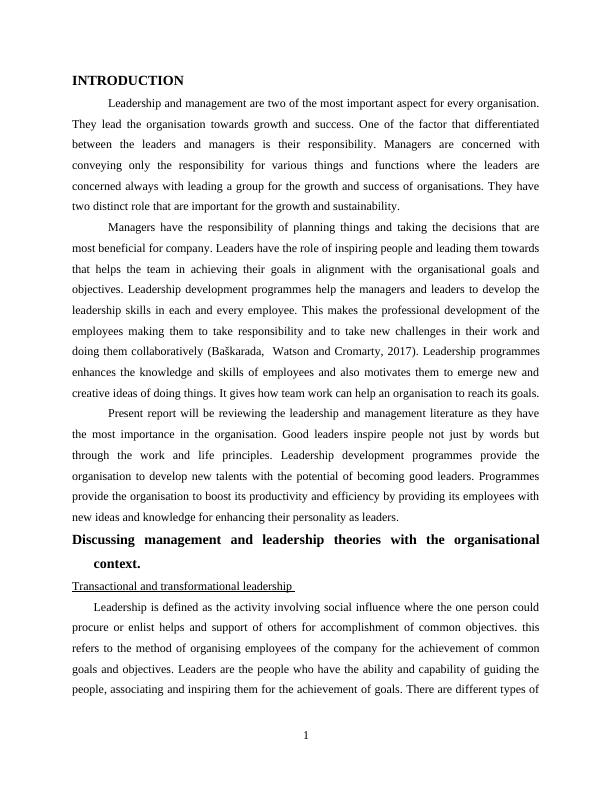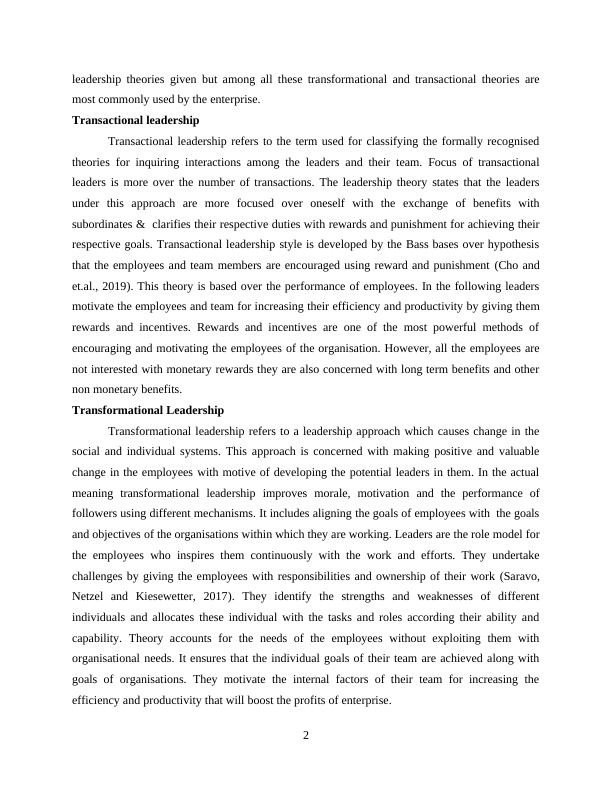Importance of Leadership Training and Development for Companies
The essay needs to be written on BASIC ENGLISH and should be ready on 25/04 (Saturday).
13 Pages4799 Words72 Views
Added on 2023-01-11
About This Document
This article discusses the importance of leadership training and development for companies. It highlights the benefits of such programs, including increased morale, improved productivity, and better decision-making. It emphasizes the need for strong leadership skills to create a positive working environment.
Importance of Leadership Training and Development for Companies
The essay needs to be written on BASIC ENGLISH and should be ready on 25/04 (Saturday).
Added on 2023-01-11
ShareRelated Documents
End of preview
Want to access all the pages? Upload your documents or become a member.
Introduction to People Management
|12
|2805
|23
Impact of Leadership Styles on Employee Motivation
|8
|2065
|62
NHS Leadership and Management
|16
|4974
|56
Concept of Leadership and Management- Assignment
|16
|4866
|384
Leadership and management - Solved Assignment
|10
|2660
|33
Theories of Leadership in Health and Social Care
|1
|698
|43




